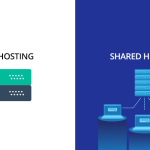Choosing the right operating system (OS) for your computer is a significant decision that can impact your productivity, security, and overall experience. Among the most popular choices are Windows and Linux, each with its unique features, advantages, and challenges. In this blog, we'll compare Windows and Linux to help you decide which one suits your needs best.
Table of contents [Show]
1. Ease of Use
- Windows: Known for its user-friendly interface, Windows is the OS of choice for most casual users. It's intuitive, with a familiar desktop environment, and comes pre-installed on many PCs. Windows offers a wide range of applications, making it easy to find software for virtually any task.
- Linux: Linux is highly customizable and comes in various distributions (distros) like Ubuntu, Fedora, and Debian. While some distros like Ubuntu are designed to be user-friendly, Linux generally has a steeper learning curve. However, for users who enjoy tinkering with their system and prefer more control, Linux can be very rewarding.
2. Software Availability
- Windows: Windows has an extensive library of software available, including popular applications like Microsoft Office, Adobe Creative Suite, and a vast selection of games. If you rely on specific software that is only available on Windows, it might be the best choice for you.
- Linux: Linux also offers a wide range of software, though it's often open-source and might not have the same level of polish as commercial Windows software. Many popular programs have Linux alternatives, and with tools like Wine or virtual machines, you can run some Windows applications on Linux.
3. Performance
- Windows: Windows is designed to work on a wide variety of hardware, but it can be resource-heavy, particularly with newer versions like Windows 10 or 11. Over time, Windows systems can become sluggish due to bloatware or unnecessary background processes.
- Linux: Linux is known for its efficiency and can run smoothly on older or less powerful hardware. It's also less prone to slowing down over time. For users looking to breathe new life into an old PC or maximize performance on limited resources, Linux is an excellent choice.
4. Security
- Windows: Due to its popularity, Windows is a primary target for malware, viruses, and other security threats. While Microsoft has improved security features in recent versions, users still need to be vigilant and use antivirus software.
- Linux: Linux is generally considered more secure than Windows, partly because it's less targeted by malware and also because of its robust permission and user management system. Linux users are less likely to need antivirus software, though security practices like regular updates and using strong passwords are still important.
5. Customization and Flexibility
- Windows: While Windows allows for some degree of customization, it’s generally limited to cosmetic changes. Users have little control over the underlying system.
- Linux: Linux shines in customization and flexibility. Users can modify almost every aspect of the OS, from the desktop environment to the system kernel. For developers, power users, or anyone who wants to tailor their OS to their specific needs, Linux is unmatched.
6. Support and Community
- Windows: Windows users have access to official support from Microsoft, as well as a vast amount of online resources, tutorials, and forums. Most hardware and software vendors offer support for Windows.
- Linux: Linux has a strong community-driven support system. While there may not be official customer service for most distros, the Linux community is active and eager to help. Online forums, wikis, and tutorials are abundant, though users might need to do more troubleshooting on their own.
7. Cost
- Windows: Windows is a commercial product, meaning you'll need to purchase a license. The cost can vary depending on the version and whether it comes pre-installed on a new PC.
- Linux: Linux is open-source and free to use. Most distros are available at no cost, which makes Linux an attractive option for budget-conscious users or those who prefer free software.
Which Should You Choose?
- Choose Windows if:
- You need specific software that’s only available on Windows.
- You prefer a user-friendly, plug-and-play experience with minimal setup.
- You’re a gamer, as most games are developed for Windows.
- Choose Linux if:
- You value customization and control over your system.
- You want a lightweight OS that runs efficiently on older hardware.
- You prioritize security and are comfortable with a bit of a learning curve.
Ultimately, the choice between Windows and Linux comes down to your specific needs, preferences, and how you plan to use your computer. Whether you opt for the familiarity of Windows or the flexibility of Linux, both operating systems have a lot to offer.







